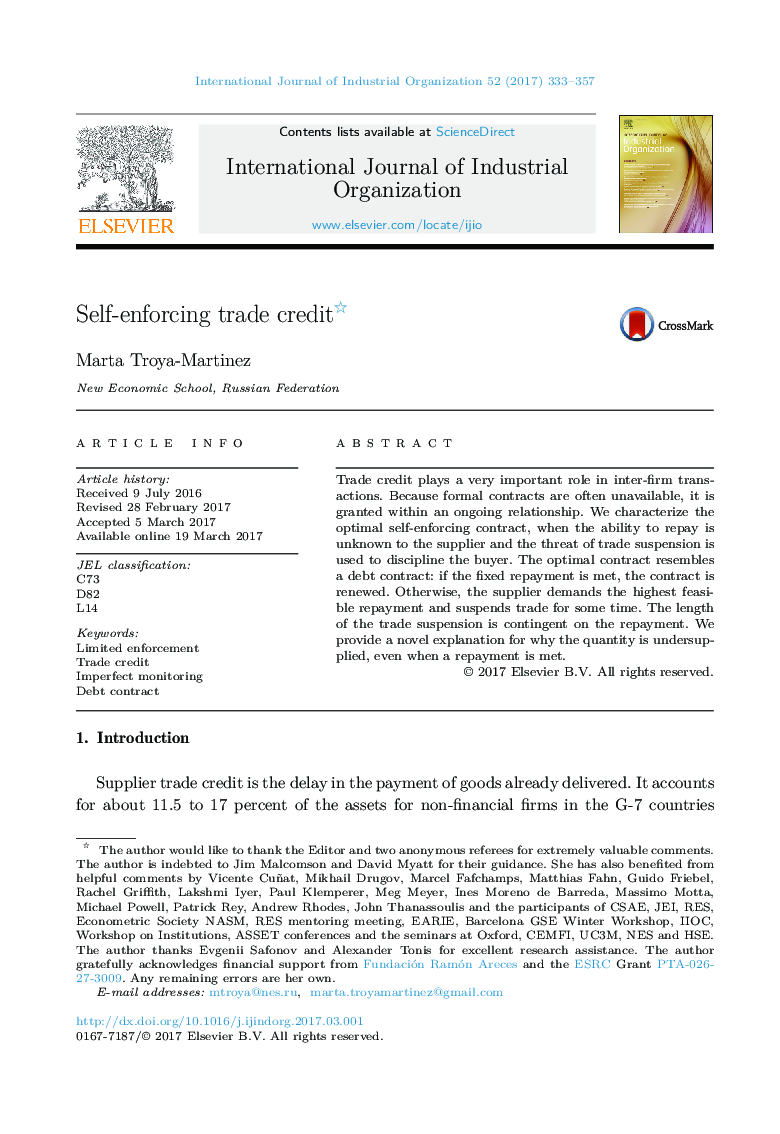| Article ID | Journal | Published Year | Pages | File Type |
|---|---|---|---|---|
| 5077761 | International Journal of Industrial Organization | 2017 | 25 Pages |
â¢We model how supplier trade credit affects inter-firm contracts.â¢The supplier cannot observe the buyer's ability to repay and the repayment cannot be enforced by a third party.â¢The optimal contract resembles a debt contract.â¢The optimal quantity is distorted downwards.â¢The need for the contract to be self-enforced can be welfare-improving.
Trade credit plays a very important role in inter-firm transactions. Because formal contracts are often unavailable, it is granted within an ongoing relationship. We characterize the optimal self-enforcing contract, when the ability to repay is unknown to the supplier and the threat of trade suspension is used to discipline the buyer. The optimal contract resembles a debt contract: if the fixed repayment is met, the contract is renewed. Otherwise, the supplier demands the highest feasible repayment and suspends trade for some time. The length of the trade suspension is contingent on the repayment. We provide a novel explanation for why the quantity is undersupplied, even when a repayment is met.
